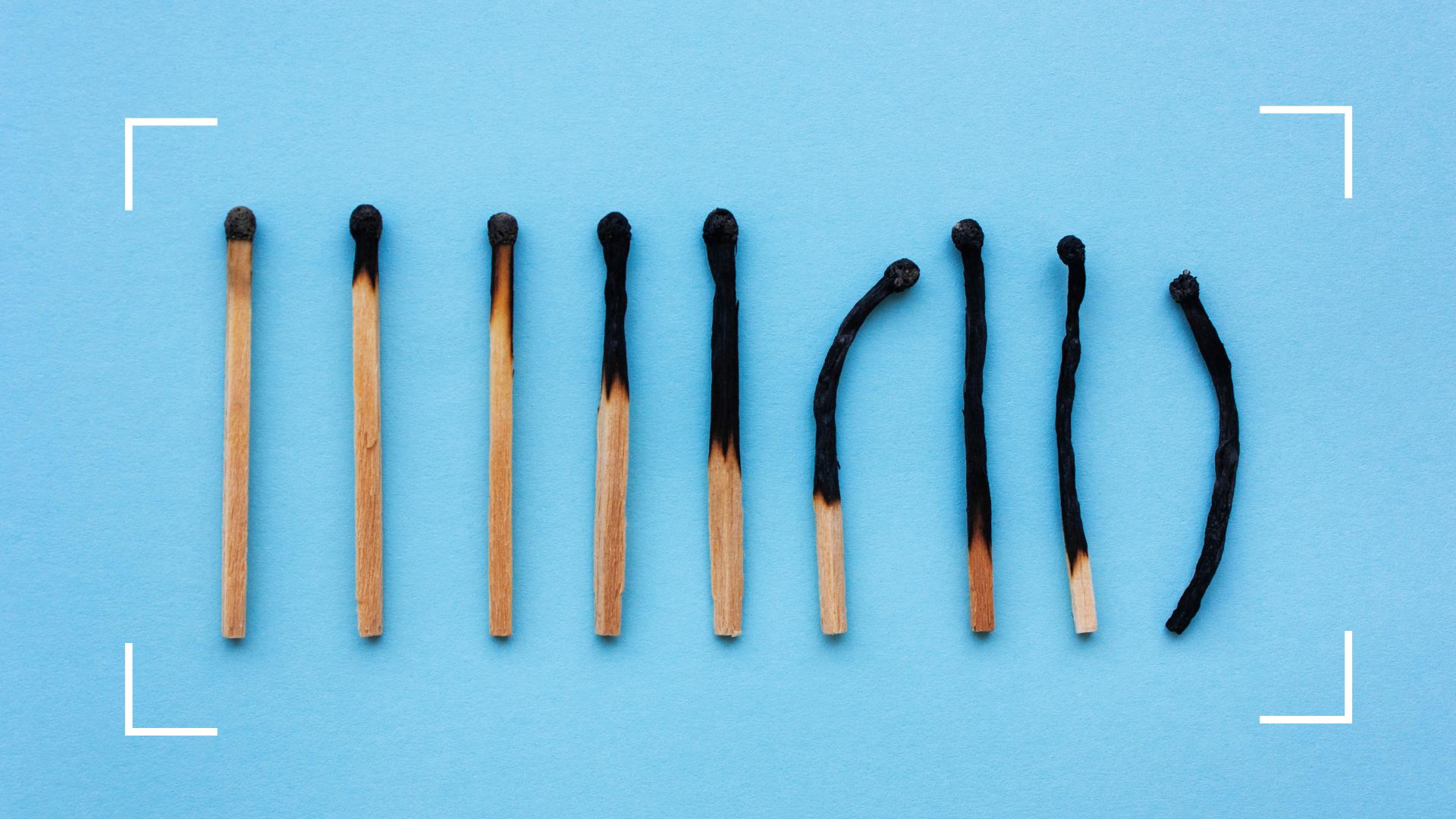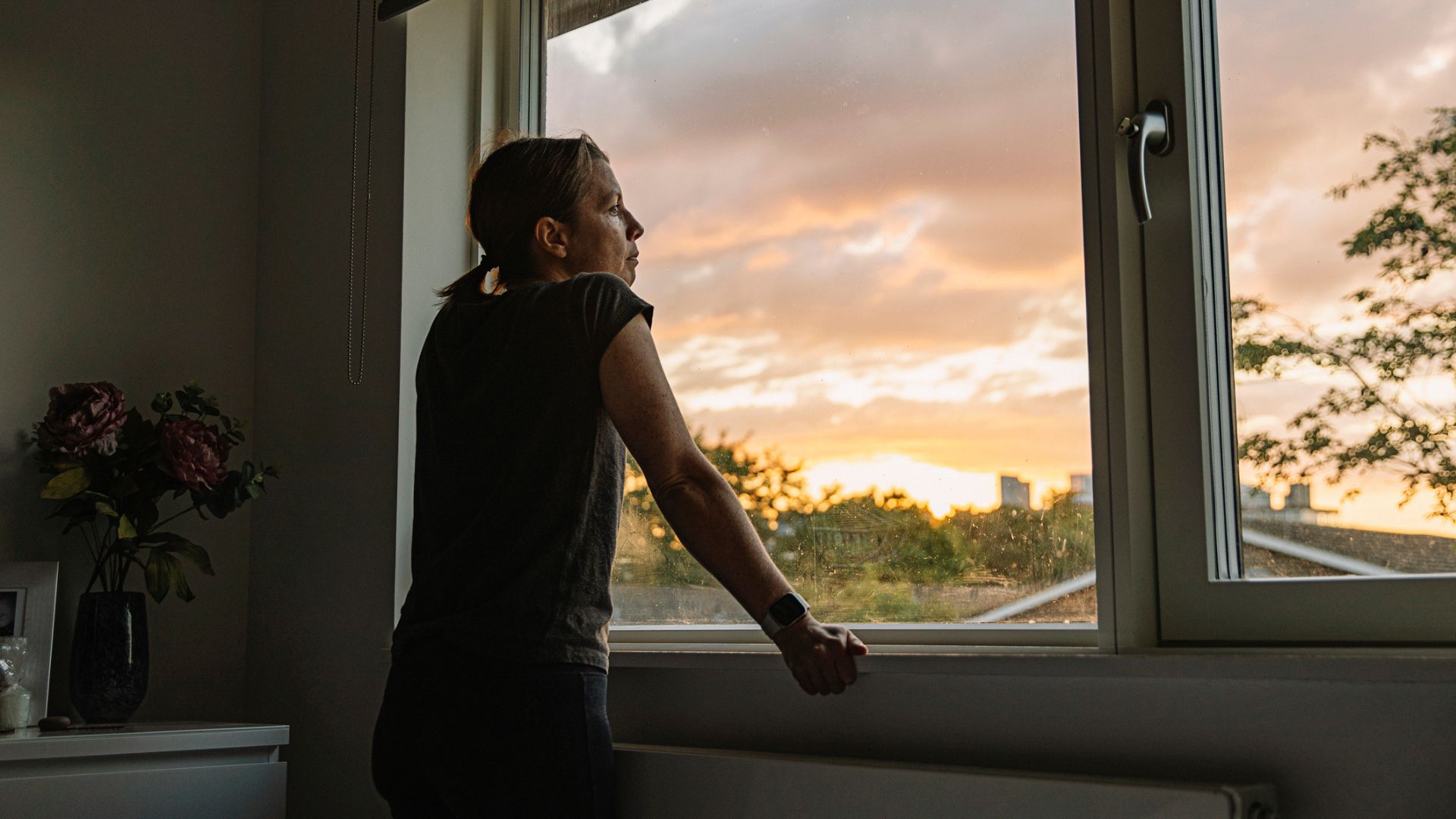The 7 early signs of burnout you should never ignore, according to psychologists
The early signs of burnout can start manifesting early on in a stressful period - these are the ones most people overlook


The early signs of burnout are the ones most misunderstood and often brushed aside in times of ongoing stress, yet they are perhaps some of the most important. If you can get ahead of the first few symptoms, you may be able to change your experience for the better.
Burnout was officially recognised by the World Health Organization in 2019 as a workplace phenomenon and syndrome. In recent years, its definition has been unofficially expanded to include long-term stress from other areas of life, including romantic partnerships, family relationships, and even exercise.
The list of burnout symptoms listed by the organisation are feelings of exhaustion, mental distance from a job, and reduced efficiency. Burnout can appear in so many different ways though, especially when the condition first begins.
Getting ahead of the early signs can help you learn how to recover from burnout before it happens and even how to avoid burnout in the first place. Here, woman&home speaks to a selection of certified psychologists and workplace specialists to reveal the unexpected symptoms to watch out for if you've been feeling under pressure lately.
Early signs of burnout
1. Irritability
When we're stressed out and experiencing the signs of high cortisol in women, the first thing to go is our sense of humour and patience, as we all know. But increased irritability, especially when there's nothing actively stressful going on, is a sure early sign of burnout.
"This emotional shift is often a result of the exhaustion and emotional drain associated with burnout," says Dr Rina Bajaj. "People may not always link these mood changes to burnout, attributing them to external stressors instead."
This irritability could manifest in various ways, explains Dr Joanna Konstantopoulou, a certified health psychologist and founder of the Health Psychology Clinic. "You may have decreased empathy and compassion for the needs and concerns of others, both at work and in personal relationships. You may also become less patient and less inclined to offer support to those around you, which can strain relationships and contribute to an overall sense of burnout." This, in turn, can lead to more arguments and disagreements both in your personal and professional life.
Sign up to our free daily email for the latest royal and entertainment news, interesting opinion, expert advice on styling and beauty trends, and no-nonsense guides to the health and wellness questions you want answered.

Dr Rina Bajaj is an award-winning chartered counselling psychologist, trainer and published author, running her own practices in London. Dr Bajaj has over 17 years of experience within the field of mental health and wellbeing across a range of industries, including charities, the NHS, corporate companies and the education sector.

Joanna Konstantopoulou is an experienced registered practitioner psychologist specialising in health psychology and cognitive behaviour therapy (CBT).
2. Stomach issues
If you've ever had 'butterflies' or experienced a 'gut-wrenching' moment, you'll be familiar with how closely intertwined gut health and anxiety are. The same goes for stress and its impacts, says Lowri Dowthwaite-Walsh, a cognitive behavioural therapist and senior lecturer at the University of Central Lancashire.
"When we experience burnout, excess stress hormones such as cortisol and adrenaline can take a toll on the body," she explains. Known as the 'gut-brain axis', one can influence the other via the vagus nerves, which make up the parasympathetic nervous system.
"Chronic stress can affect your digestive system by either slowing it down, leading to constipation, or speeding it up, which can lead to diarrhoea. The effects of such issues can cause further stress in itself, depending on the situation you're in," she says.

Lowri Dowthwaite-Walsh is a cognitive behavioural psychologist. She works as an honorary senior lecturer for the School of Health, Social Work and Sports Science at the University of Central Lancashire (UCLan).
3. Muscle pain
In the same way that the brain can have a direct impact on other organs, it can physically fatigue and strain our muscles and joints, leading to muscular tension and spasms. "The rise of cortisol, the stress hormone, can cause inflammation in the joints, leading to pain and discomfort," says Dowthwaite-Walsh.
Plus, if you're feeling constantly under stress and pressure at work then chances are you're spending a lot of time at a desk. Here, your posture may become more rounded. While there's no such thing as perfect posture, if your back assumes a rounded position for hours at a time, over time, this can cause the muscles in your upper back to length and those in your chest to shorten. In turn, this can lead to some discomfort in your muscles, as well as shoulder and lower back pain.
4. Extreme tiredness
Feeling tired all the time is one of the more common symptoms of burnout, but it's something worth keeping an eye out for early on as it's often overlooked and dismissed as a normal outcome of a busy week, says Dr Becky Spelman, a psychologist specialising in cognitive behavioural therapy (CBT).
"Persistent tiredness, even after resting or taking breaks, is one of the ways burnout can manifest," she says. "It's not just physical tiredness but also emotional, where individuals feel drained and depleted of emotional resources."
If this tiredness continues, it can lead to a severe form of burnout called habitual burnout, where it's no longer a period of extreme stress, but a way of living. It may also be accompanied by headaches, dizziness, slow reflexes, and impaired judgment.

Dr Becky Spelman is a counselling psychologist and founder of Private Therapy Clinic. She uses psychodynamic therapy, cognitive behavioural therapy (CBT), eye movement desensitisation reprocessing, dialectical behaviour therapy (DBT) and mindfulness to treat a range of difficulties surrounding relationships, anxiety, depression, low self-esteem, social anxiety, fear of public speaking, fear of intimacy, interpersonal difficulties, anger, body image issues, eating disorders and addictions.
5. Loss of libido
Much like full-on burnout, the early signs of burnout can impact every area of your life, including your romantic relationships. When heading towards burnout, many people find themselves completely uninterested in sex and general partner intimacy, says Dowthwaite-Walsh.
"Elevated levels of cortisol also have an effect on testosterone levels in both men and women, which can lower your libido and reduce your chances of sexual connection," she says.
A loss of sex drive isn't unusual during various stages of life though. For example, low libido in menopause is a very common symptom. Even in times of little to no stress, many people struggle with knowing how to boost their libido, so if you have concerns about your wellbeing in this area, speak to your doctor.

6. Inability to concentrate
Whether you're dealing with work burnout or emotional burnout, if you're finding it hard to concentrate in daily life, chances are you may be experiencing the early signs of burnout. "A decline in productivity and motivation at work or in daily tasks can be an early indicator of burnout," says Dr Bajaj. "People might initially blame distractions or lack of interest, but when it becomes a consistent pattern, it may be a sign of burnout-related disillusionment."
For the same reasons, she adds, you may find it difficult to make a decision, find yourself making more mistakes, forgetting things, and actively disengaging from a conversation with even those closest to you.
"Emotional detachment is a subtle sign of burnout," says Dr Konstantopoulou. "You may find yourself disengaged, uninterested, or emotionally distant and this detachment can affect your ability to connect with others, even if you did manage to maintain productivity."
7. Lack of life satisfaction
If you're headed towards burnout, you may feel a complete lack of satisfaction with your life. For example, after working to get a job promotion, burnout may have made you feel deflated or a little underwhelmed after achieving it.
As Dr Spelman says, "People in the early stages of burnout may start to feel indifferent about their accomplishments and nothing seems to bring joy or a sense of accomplishment."
It's one of the many reasons why those going through burnout often end up 'quiet quitting' as they feel exhausted and don't feel like they are making progress, whatever the activity. It's a slippery slope as it could lead to other mental health issues, including depression, as well.
Am I burnt out or just tired?
It's easy to confuse burnout and extreme tiredness, the experts say. They have many similar symptoms but burnout is characterised as a stress-related syndrome where exhaustion, tiredness, and fatigue could be one of many symptoms, says Dowthwaite-Walsh.
For many people, tiredness is a temporary loss of energy brought about by physical effort (exercise burnout) alongside daily life and it gets better with rest and learning how to lower cortisol levels. The same, unfortunately, can't be said for burnout.
How long does burnout usually last?
Much like everything else to do with mental and physical health, it varies between people, says Dowthwaite-Walsh, but some people can feel better a few months after removing themselves from a stressful situation or workplace. For others, it may take up to a year or longer to fully heal.
"Recovery depends on what someone has experienced and the extent of the stress and trauma they have suffered," she explains. "Rest and self-care are essential to recover from burnout, as well as having support and connection with others."
The early signs of burnout are often subtle and they can be attributed to various causes, Dr Bajaj reminds us. "However, if they persist and start to impact your daily life, it's essential to consider them as potential indicators of burnout and take steps to address the underlying causes."

Grace Walsh is woman&home's Health Channel Editor, working across the areas of fitness, nutrition, sleep, mental health, relationships, and sex. She is also a qualified fitness instructor.
A digital journalist with over seven years experience as a writer and editor for UK publications, Grace has covered (almost) everything in the world of health and wellbeing with bylines in Cosmopolitan, Red, The i Paper, GoodtoKnow, and more.